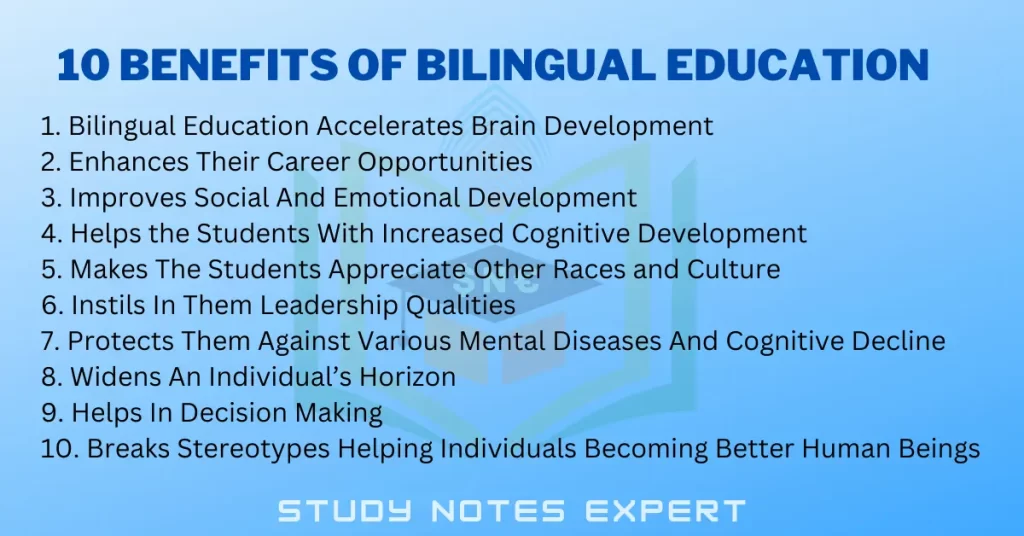With increased mobility and global connectivity, our world is getting significantly smaller. We move to different countries for the purpose of higher studies or jobs. It makes us figure out studying and working with people belonging to different backgrounds and cultures and obviously speaking different languages. It becomes a problem to mingle with other people if we do not understand or speak their language. After all, language is the key to communication. In the further sections, you will know the benefits of bilingual education for students.
These days, bilingual modes of education in schools and colleges are becoming increasingly popular as they help in catering to the needs of demand of people to speak in more than one language. The benefits of a bilingual education are more than merely being able to speak two languages. To know more about bilingual education and its benefits, let us read further.
What Is Bilingual Education?
Bilingual education is the use of two languages in the course of a student’s education in schools and colleges. Apart from one’s native language, a student is taught in another language which is widely recognized as a medium of their education. This way, they are able to grasp and master the second, helping them to excel in their academics and enhancing their opportunities to study and work in different parts of the world.
With the increasing demands for a bilingual mode of education, digital bilingual school is gaining a fair share of popularity due to the convenience and benefits that it offers.
Top 10 Interesting Benefits Of Bilingual Education For Students
The emergence of bilingual education in today’s era provides a lot of benefits to their students. The dual language mode of education is designed to help students to pick up proficiency in their mother tongue as well as the second language to broaden their opportunities in the professional arena. Let us look at all the benefits of bilingual education that it has to offer.

1. Bilingual Education Accelerates Brain Development
There are various studies ascertaining the fact that a bilingual child has a better IQ than a monolingual child. Speaking in two languages has a positive effect on the brain as they train them to process faster due to the frontal lobe becoming more active. Because of the ability to switch between languages, bilingual children develop a flexible approach to solving problems.
Studies conducted on monolingual and bilingual children showed that bilingual children have more grey-and-white matter as compared to those who speak only one language. It accelerates the brain development as it is the benefits of bilingual education.
2. Enhances Their Career Opportunities
The interconnected world that we live in requires us to be well-versed in languages that are not native to us. Being proficient in more than one language helps individuals gain an edge over their counterparts as they are more demanded in domestic as well as international companies.
The ability to speak in more than one language is considered to be an extra skill that is appreciated by recruiters from various sectors. The benefits of bilingual education affects the career opportunities.
3. Improves Social And Emotional Development
Bilingual education develops strong values in children and helps them maintain familial ties and bonds with their cultures and communities. It creates a sense of pride in them, which aids them in connecting better with their family and peers. They become less prone to feeling isolated and are comfortable among other people. Studies show that bilingual students are to feel less depressed in vulnerable situations. The benefits of bilingual education helps them in maintaining relationships.
4. Helps the Students With Increased Cognitive Development
It is a popular observation that has been noticed in bilingual students have better attention and task-switching capacities. The ability to focus is instilled in children from a young age by teaching them two different languages that is due to the benefits of bilingual education. They develop strong concentration power, multitasking skills, and better grasping power. Besides these, they display better memory, creativity, and visual-spatial skills.
5. Makes The Students Appreciate Other Races and Culture
When a child is exposed to different cultures and races from a young age, they grow to be more empathic towards difference in culture and traditions. It makes them appreciate different races and helps them to be unbiased towards other people belonging to other cultures. They become more open to diversity present around us and also increase their emotional intelligence.
6. Instils In Them Leadership Qualities
Individuals who find themselves comfortable around people, be they of any race or culture, have a sense of leadership quality gets instilled in them. The reason that they can communicate efficiently in more than one language makes them confident and boosts their communicative ability. They also become better collaborators and team players, which are perceived to be essential skills to becoming a good leader. It will be due to the benefits of bilingual education.
7. Protects Them Against Various Mental Diseases And Cognitive Decline
One of the most amazing benefits of bilingual education students is that they show less cognitive decline and are less prone to show mental diseases like Dementia and Alzheimer’s in their later life. The onset of such diseases and impairment show a delay in bilingual individuals.
8. Widens An Individual’s Horizon
The benefits of bilingual education also helps in widening their student’s horizons. When students are exposed to people speaking different languages and following different cultures, they learn to perceive things in more than one way. They are to make decisions based on their varied and flexible perceptions, which often a monolingual lacks.
9. Helps In Decision Making
Due to the widening of their perspectives and increased communication with students from other backgrounds, their skill of decision-making improved to a large extent, and they gained expertise in almost all sectors. Bilingualism changes the way we think in a positive way and helps in organizing thoughts, and increases the ability to make better decisions. It happens due to the benefits of bilingual education.
10. Breaks Stereotypes Helping Individuals Becoming Better Human Beings
In a bilingual school, a child is taught that everyone is equal and no race or community is superior to others. Due to some negative influence, our children can become biased towards some races. Learning a language other than their native dismisses the feeling of superiority or inferiority in them and enables them to think beyond that.
Conclusion
The benefits of an offline and online bilingual school are many, as stated above. It not only teaches the child to speak in a dual language but also makes them empathetic, unbiased, intelligent, and successful in life. Overall, the benefits of bilingual education makes an individual a better human being by understanding the thought process, culture, living standards, and more things about the different language-speaking communities.

